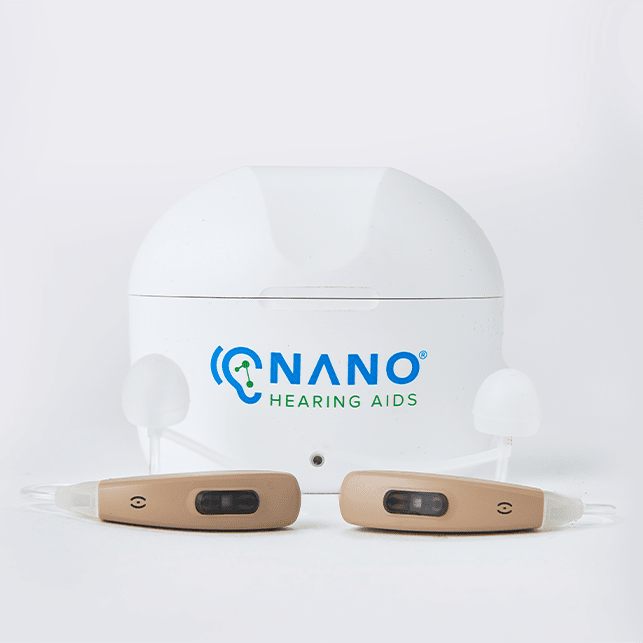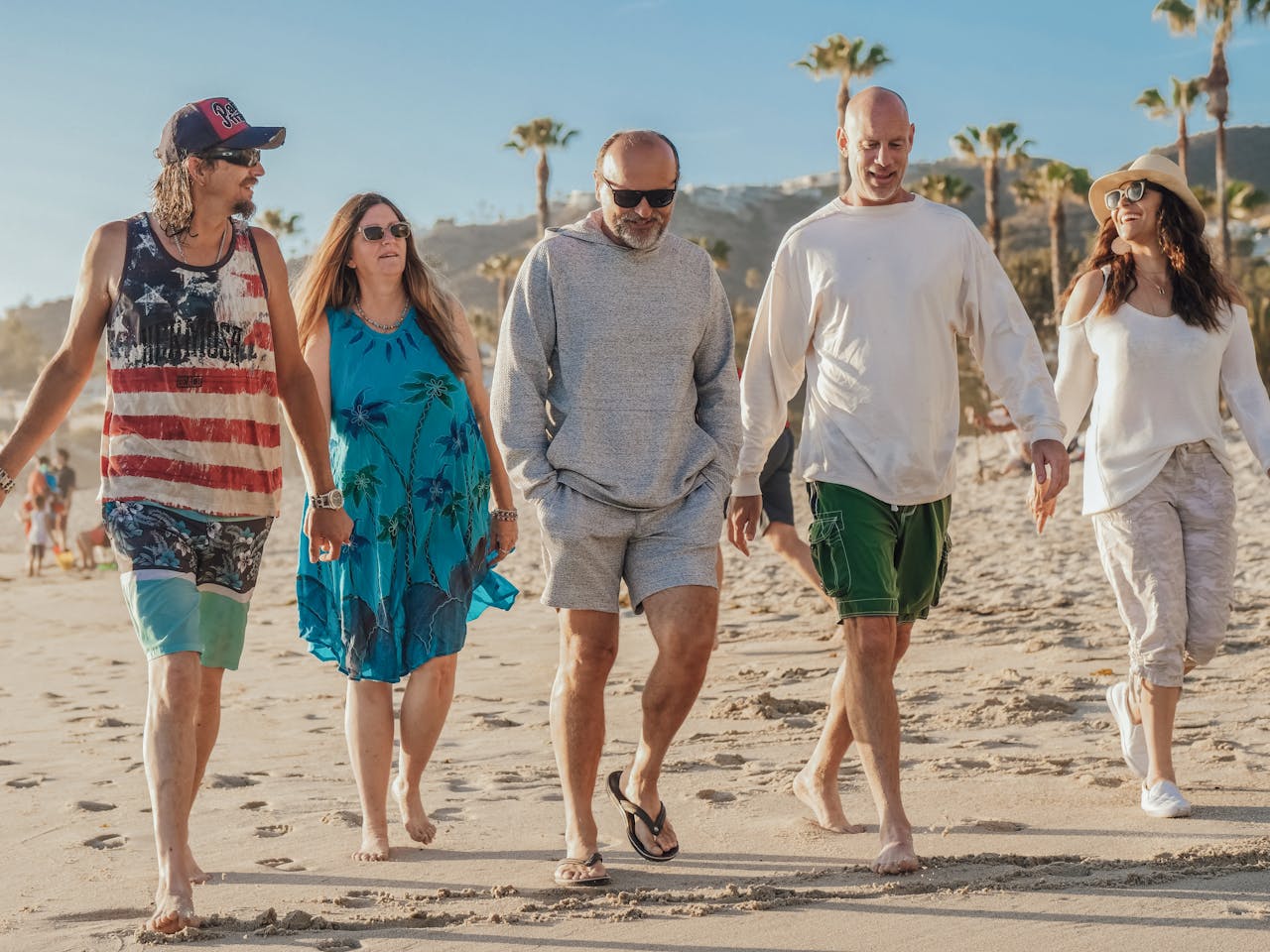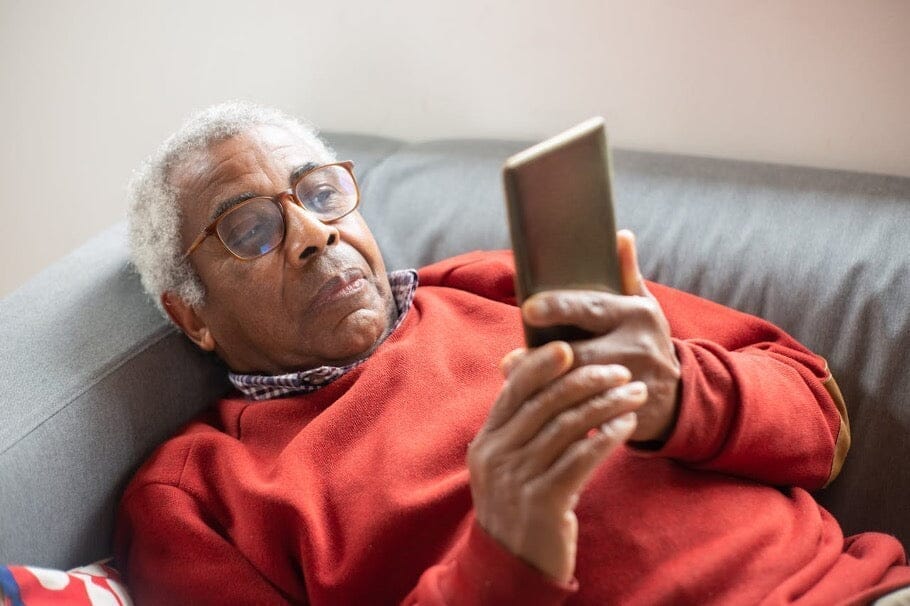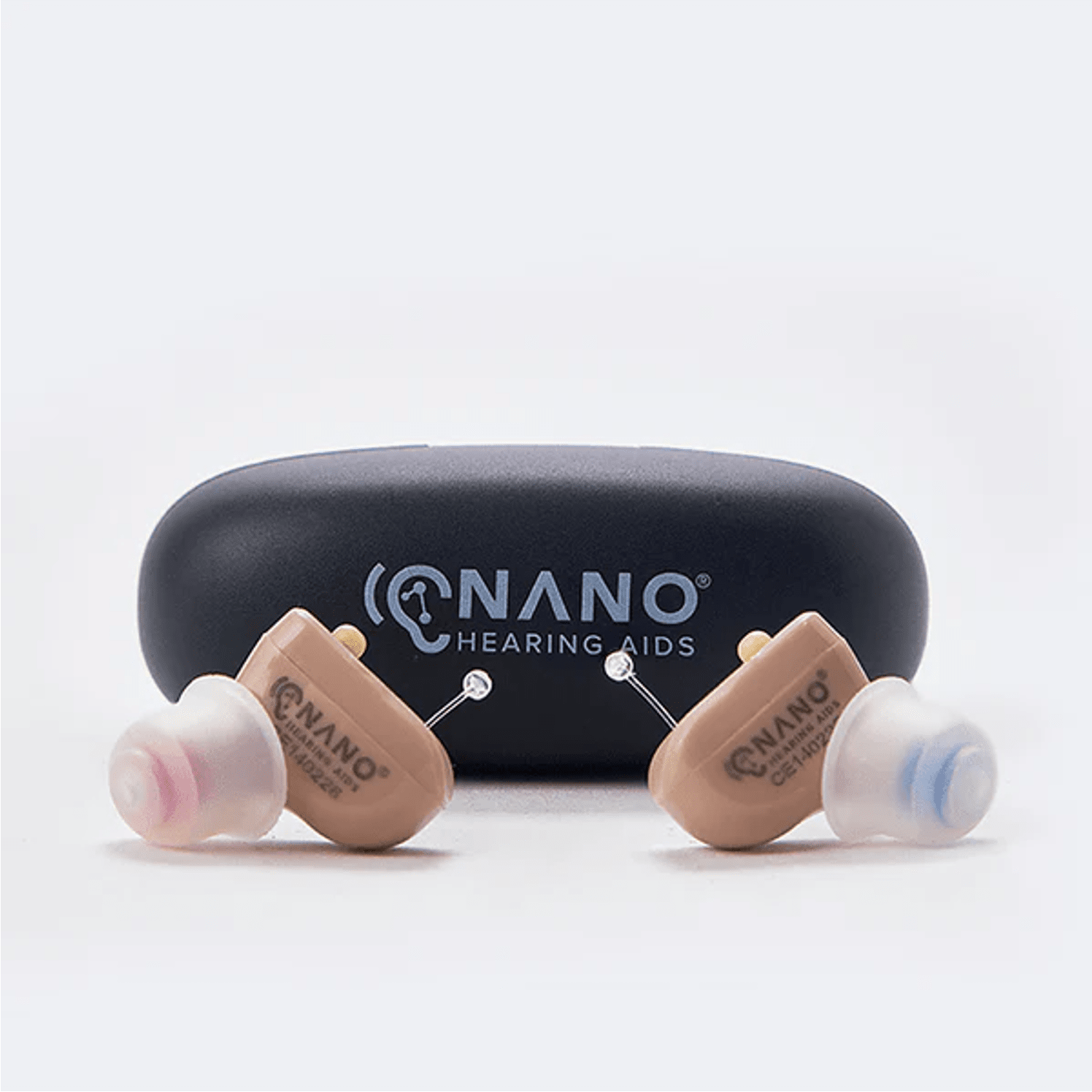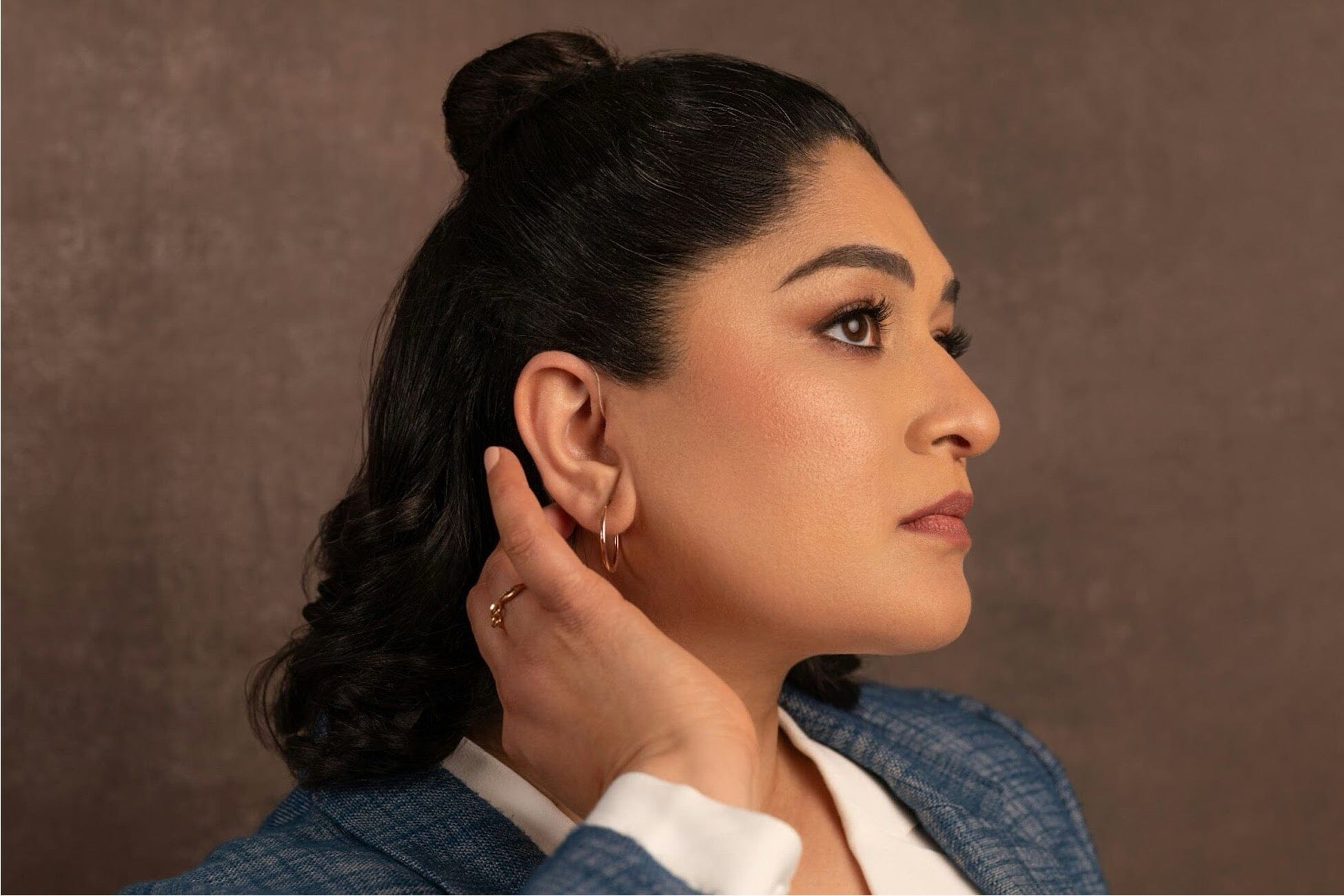Key Takeaways
- Reverse slope hearing loss (RSHL) primarily affects lower frequencies, making it hard to hear deep voices and background noises.
- It can be caused by genetic factors, inner ear anomalies, or certain medical conditions.
- Common symptoms include difficulty hearing low-pitched sounds and understanding male voices.
- Treatment may include hearing aids, surgical interventions, or alternative therapies.
- Nano OTC hearing aids are a cost-effective and user-friendly option for adults with perceived mild to moderate hearing loss, offering adjustable pre-set configurations but less customization than professional prescription aids.
What is Reverse Slope Hearing Loss?
Imagine looking at a graph that shows the range of sounds from low to high frequencies. For most people with hearing loss, the graph would show a decline in the ability to hear higher frequencies, resembling a ski slope. The image below shows an audiogram of high-frequency hearing loss.
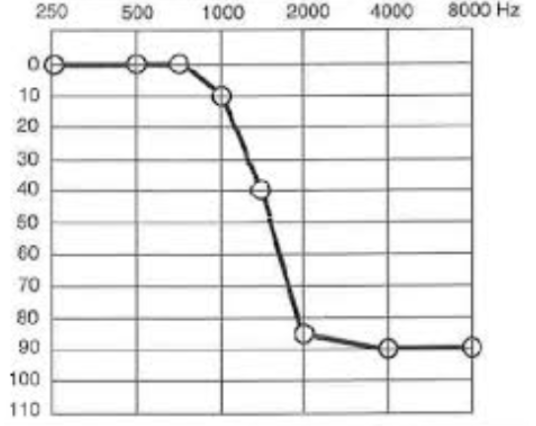
In contrast, reverse slope hearing loss shows the opposite pattern. The "reverse slope" indicates that lower frequencies are harder to hear, while higher frequencies are less affected. This condition can make everyday sounds like the rumble of a truck, a bass guitar, or one's deep voice challenging to discern.
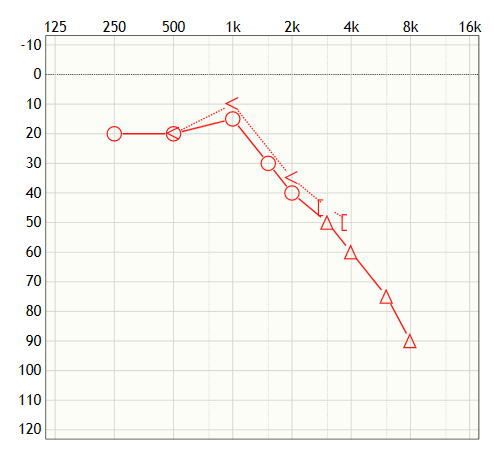
Degrees of reverse slope hearing loss:
- Mild reverse slope hearing loss: Individuals with mild reverse slope hearing loss may notice a slight difficulty in hearing lower-frequency sounds, such as men's voices or background noises. Conversations can seem less clear, and some sounds might appear softer than they actually are. This level of hearing loss may not significantly impact daily life, but some may struggle with understanding speech in settings with a lot of background noise.
- Moderate reverse slope hearing loss: Those experiencing moderate reverse slope hearing loss will likely face more pronounced challenges, particularly with hearing lower-pitched sounds clearly. This can make understanding speech difficult, especially in noisy environments or when listening to speakers with deeper voices. Music and environmental sounds may also seem to lack depth. In this stage, individuals might benefit from using hearing aids tailored to amplify lower frequencies or other assistive listening devices.
- Severe reverse slope hearing loss: Individuals with severe reverse slope hearing loss often find it very difficult to hear lower-frequency sounds, making it challenging to understand speech without visual cues or lip-reading. Conversations can be extremely hard to follow, particularly without the use of specialized hearing aids or cochlear implants. The quality of life can be significantly impacted, as this level of hearing loss may isolate individuals from social interactions and hinder their ability to communicate effectively.
Nano Hearing Aids are FDA-registered, Class I devices. These OTC hearing aids are designed for individuals over 18 years of age with perceived mild to moderate hearing impairment. Nano won the Top ENT Solution Provider 2023, has 24/7 customer care, and has an affordable price compared to others.
Causes of Reverse Slope Hearing Loss
- Genetic Predispositions: Hereditary inclinations towards hearing loss stem from specific genetic mutations that alter the auditory system's structure or functionality.
- Inner Ear Structural Anomalies: Variations or defects in the inner ear's architecture can disrupt normal hearing processes, impacting sound transmission and reception.
- Diseases like Ménière’s disease: These disorders significantly affect the inner ear, leading to symptoms that impair hearing and balance.
- Ear Infections: Infections within the ear can cause temporary or permanent damage to hearing, depending on the severity and frequency of the infections.
- Certain Medications or Treatments: The use of specific ototoxic medications or treatments can adversely affect hearing, causing temporary or lasting hearing loss.
Symptoms of Reverse Slope Hearing Loss
- Hearing Difficulties in Loud Settings: Struggles with discerning sounds amidst background noise.
- Low-Pitched Sound Detection Issues: Difficulty in hearing bass frequencies in music.
- Difficulty with Deep Voices: Challenges in comprehending lower-pitched, particularly male, voices.
- Inability to Hear Natural Sounds: Failing to catch environmental noises such as thunder.
- Perception of Muffled Voices or Sounds: Experiencing voices and sounds as if they are not clear or distinct.
Diagnosing Reverse Slope Hearing Loss
This condition, characterized by difficulty hearing low-frequency sounds, necessitates a comprehensive evaluation that may include specialized hearing tests. Key assessments could involve pure tone audiometry, which helps delineate the specific frequencies affected, and speech audiometry to evaluate understanding of speech.
Treatment Options for Reverse Slope Hearing Loss
Hearing Aids and Personalized Sound Amplification
When it comes to managing reverse slope hearing loss, hearing aids are often the first line of defense. However, it's not as simple as just picking any hearing aid off the shelf. These devices need to be carefully calibrated to amplify lower frequencies without overdoing it at higher pitches that the person can already hear well.
Hearing aid fittings involve a detailed hearing assessment, after which the hearing professionals programs the hearing aid to match the specific hearing loss pattern of the individual. This ensures that sounds are not just louder, but clearer and more balanced.
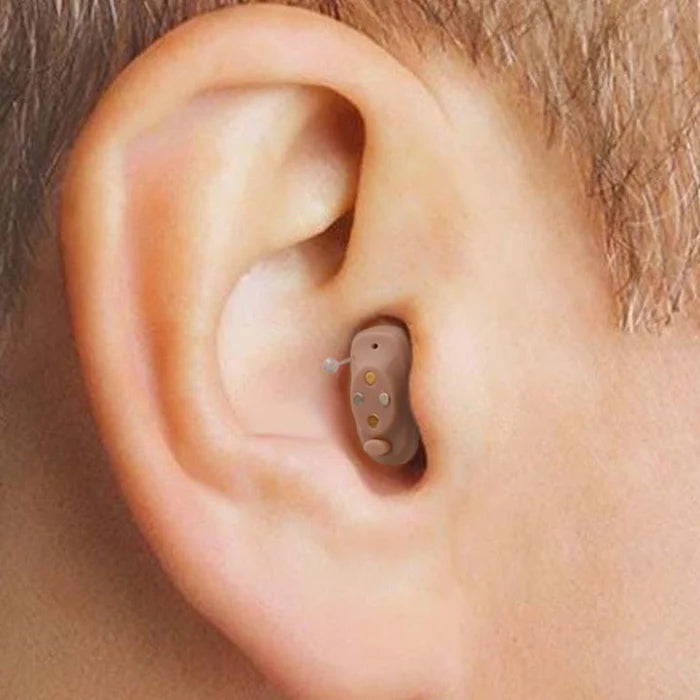
Exploring Surgical Interventions
In some cases, when hearing aids are not sufficient or suitable, surgical interventions may be considered. For example, if RSHL is caused by a structural issue within the ear, such as a malformation or a blockage, surgery might be able to correct it. Cochlear implants are another option, particularly for severe cases where traditional hearing aids don't provide enough benefit. However, surgery is not suitable for everyone.
Alternative Therapies and Assistive Devices
Beyond hearing aids and surgery, there are other ways to improve the quality of life for those with RSHL. Assistive listening devices, such as amplified telephones or specialized alarm systems, can be tailored to produce lower-frequency sounds more prominently. Other alternative therapies might include lip-reading classes or sign language courses to supplement communication abilities.
Some individuals find relief in using sound therapy or joining support groups, where they can share experiences and coping strategies with others who understand the challenges of living with hearing loss.
Living with Reverse Slope Hearing Loss
Adjusting to life with reverse slope hearing loss is a journey that often requires both practical strategies and emotional support. One of the first steps is to create an environment that's conducive to hearing as well as possible.
This might mean rearranging living spaces to reduce background noise or investing in devices that emphasize lower frequencies. It also means being proactive in social situations—letting friends and colleagues know about your hearing loss and how they can help make communication easier.
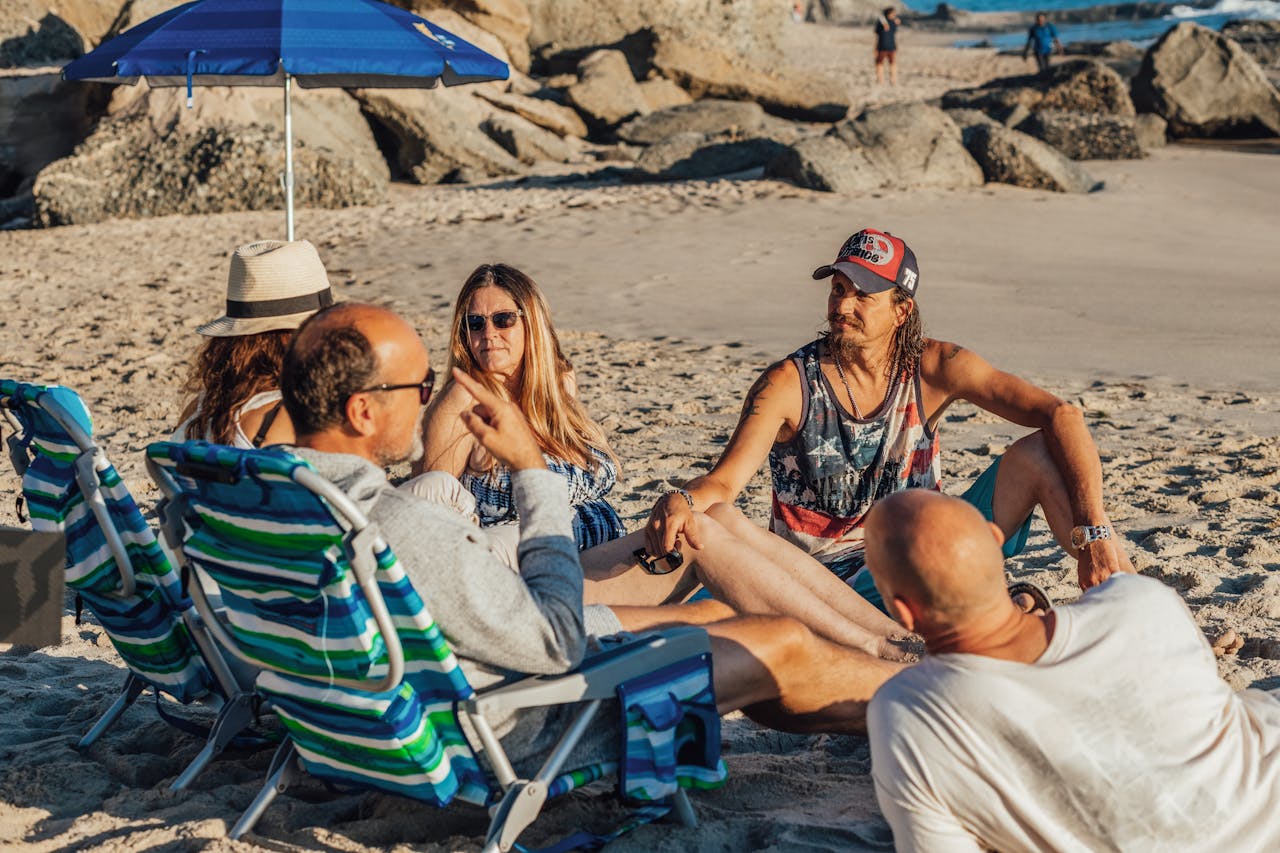
Can Reverse Slope Hearing Loss be Prevented?
By adopting certain practices, you can safeguard your hearing health and potentially prevent further deterioration.
- Ear Protection: Use earplugs or earmuffs in loud environments to prevent damage from noise exposure.
- Medication Awareness: Avoid ototoxic drugs unless necessary, and always consult with a healthcare provider.
- Prompt Infection Treatment: Address ear infections quickly to avoid complications that could impair hearing.
- Regular Hearing Exams: Especially important for those with a family history of hearing loss or exposure to risky environments, these check-ups can catch issues early.
- Health Management: Control systemic health issues like diabetes or hypertension that could indirectly affect your hearing.
Nano OTC Hearing Aids for Perceived Mild to Moderate Hearing Loss
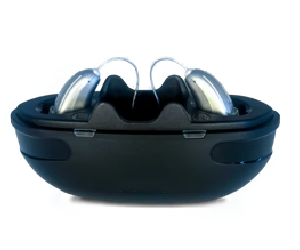
Over-the-counter (OTC) hearing aids like those we offer at Nano Hearing Aids can be a cost-effective solution for those with perceived mild to moderate hearing loss. These devices are designed to be user-friendly and often come with pre-set configurations that can be adjusted to some extent by the user. For example, our new Audacity® RIC model, priced at $697, has the following functions:
- 3 listening programs
- Powerful Feedback Cancellation and Noise Management
- Directional Microphone Technology
- App control
- Bluetooth calls and music streaming
Call us at (877) 357-0247 and we’ll help you find out if Nano is right for you and choose the most suitable hearing aids.
Frequently Asked Questions (FAQ)
What is the Prognosis for Individuals with Reverse Slope Hearing Loss?
The prognosis for individuals with RSHL varies depending on the cause and severity of the condition. Many people manage well with hearing aids or other interventions and can lead full and active lives. Early diagnosis and treatment can significantly improve the outlook, making it important to seek professional help at the first sign of hearing difficulties.
It's also worth noting that advances in hearing technology and rehabilitation methods continue to improve outcomes for those with RSHL, offering more hope for effective management of the condition.
Are There Any Lifestyle Changes That Can Help Manage Symptoms?
Yes, there are several lifestyle changes that can make a significant difference for those with reverse slope hearing loss. These include:
- Reducing background noise when possible to make it easier to hear low-frequency sounds.
- Using visual cues and lip-reading to enhance understanding during conversations.
- Optimizing the placement of speakers and sound systems at home to better capture lower frequencies.
Is Reverse Slope Hearing Loss Covered by Health Insurance?
Health insurance coverage for reverse slope hearing loss varies by provider and plan. Some insurance plans may cover diagnostic testing, hearing aids, and possibly even surgical interventions, depending on the underlying cause of the hearing loss. It's important to check with your insurance provider to understand what aspects of diagnosis and treatment are covered under your policy. Additionally, some government programs and non-profit organizations may offer financial assistance for hearing aids and other hearing-related expenses.

